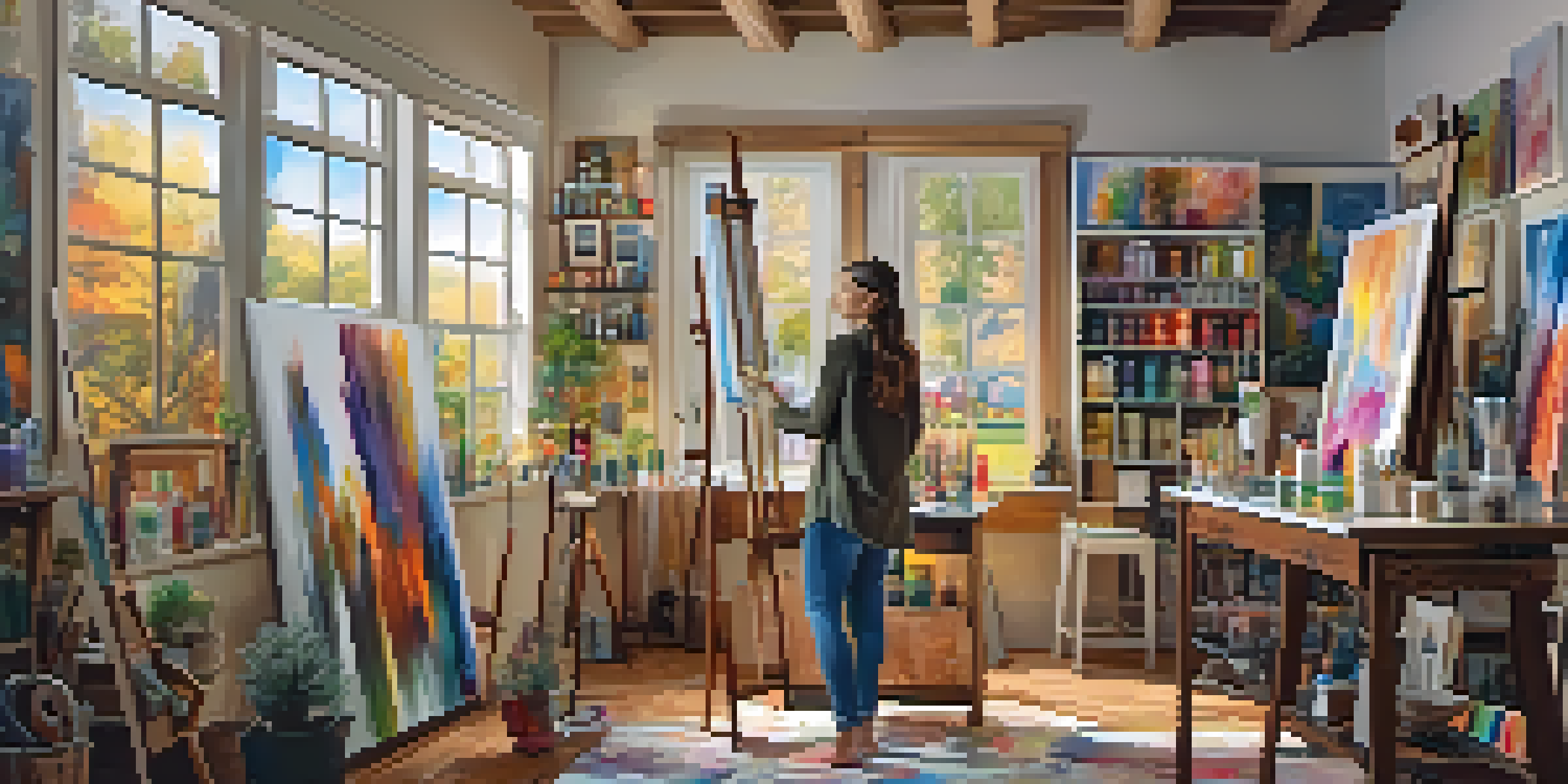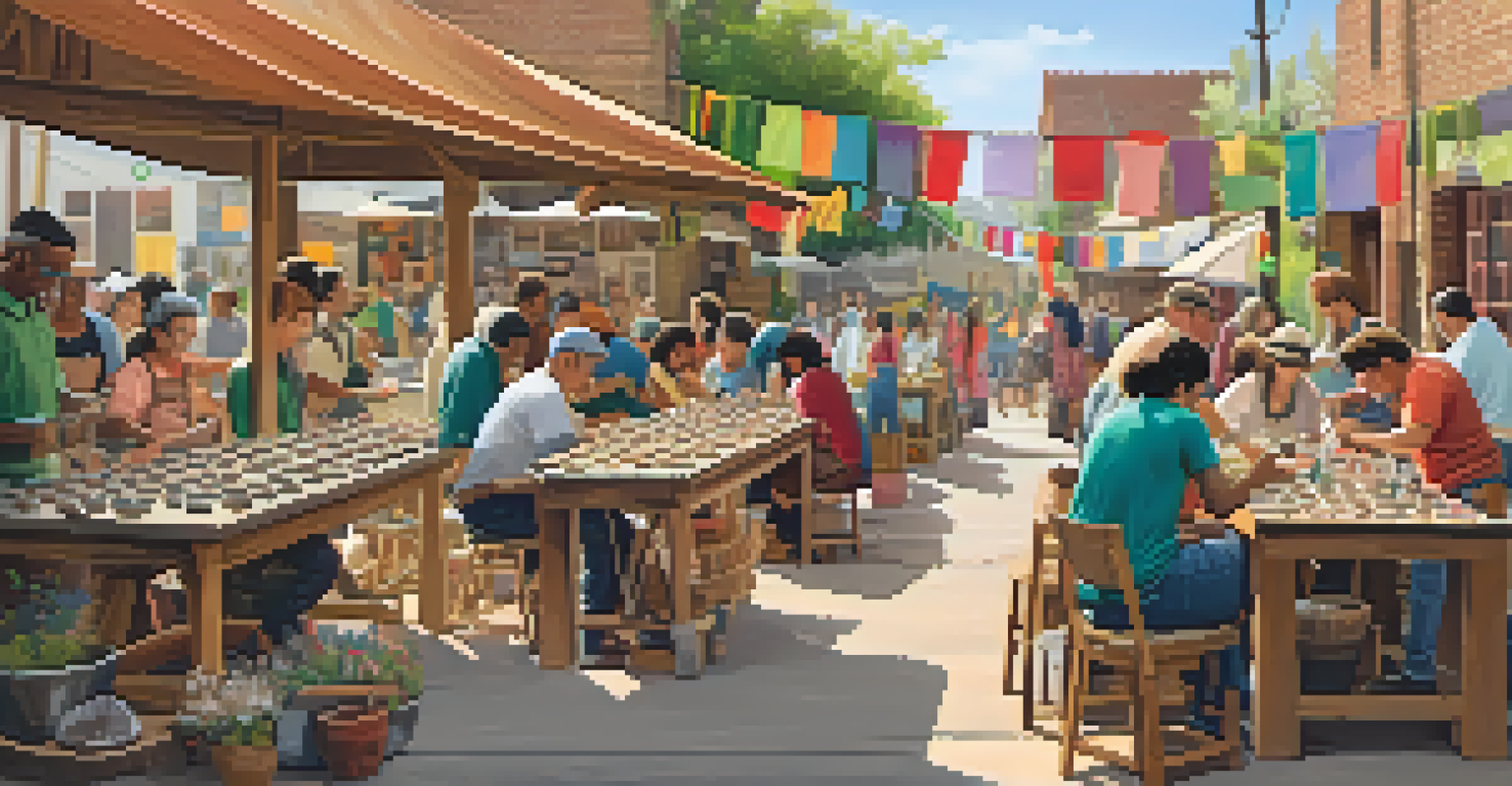How to Choose the Right Community Workshop in Scottsdale

Understand Your Interests and Goals
Before diving into workshops, take a moment to reflect on your interests and what you hope to achieve. Are you looking to learn a new skill, meet new people, or simply explore a hobby? Understanding your goals will help you narrow down your options and find a workshop that truly resonates with you.
The only way to do great work is to love what you do.
For instance, if you’ve always wanted to paint but have never picked up a brush, seek out a beginner painting class. Conversely, if you’re already an experienced artist looking to refine your techniques, find a more advanced workshop. Your personal goals will guide your choices and ensure you get the most out of your experience.
Remember, a workshop is not just about learning; it's also about personal growth and connection. By identifying your interests upfront, you’ll be better positioned to choose a community workshop that aligns with your aspirations.
Research Local Options and Offerings
Scottsdale is brimming with diverse community workshops, from pottery to photography and everything in between. Start your search by exploring local community centers, art studios, and even online platforms that list workshops in your area. Websites and social media pages can provide a wealth of information on what’s available.

Consider visiting local bulletin boards or community groups online, like Facebook or Meetup, where workshops are often advertised. Attending local art fairs or community events can also provide insights into workshops you may not have considered. Gathering this information will help you create a shortlist of potential options.
Identify Your Goals Before Workshops
Understanding your personal interests and objectives will help you choose the most suitable workshop.
Once you have a list, take the time to read reviews or testimonials from past participants. Real experiences can give you a clearer picture of what to expect and help you gauge the quality of each workshop.
Evaluate the Credentials of Instructors
The instructor can make or break your workshop experience. When considering a workshop, look for information about the instructor’s background and experience in the field. Are they a professional artist, a skilled tradesperson, or an experienced educator? Knowing their qualifications can boost your confidence in the learning environment.
Education is the most powerful weapon which you can use to change the world.
Don’t hesitate to reach out and ask questions about the instructor’s teaching style or their previous workshops. A good instructor will be happy to discuss their approach and share success stories from past students. This can help you determine if their style aligns with your learning preferences.
Remember, a great workshop is not just about the material covered; it’s also about how that material is taught. A passionate and knowledgeable instructor can inspire you and make the learning process enjoyable.
Consider Class Size and Structure
Class size can significantly impact your workshop experience. Smaller classes often provide more personalized attention, allowing instructors to give feedback and support tailored to your needs. On the other hand, larger classes can foster a sense of community and provide opportunities for networking.
Think about your learning style—do you thrive in a more intimate setting, or do you enjoy the energy of a larger group? Understanding your preferences will help you choose a workshop structure that suits you best. Additionally, check how the workshop is organized: is it hands-on, lecture-based, or a mix of both?
Research Local Workshops Thoroughly
Explore various community options, read reviews, and gather insights to create a shortlist of workshops that appeal to you.
Ultimately, the right class size and structure can enhance your experience and help you achieve your goals more effectively.
Check for Materials and Supplies Included
When evaluating workshops, pay attention to what materials and supplies are included in the fee. Some workshops provide everything you need, while others may require you to bring your own materials. Knowing what to expect can help you budget effectively and avoid any surprises.
For instance, if you're attending a pottery workshop, does the fee cover clay and tools, or will you need to purchase them separately? Understanding these details beforehand can help you prepare and ensure you have all the necessary equipment to fully participate.
Also, consider the quality of materials provided. High-quality supplies can make a significant difference in your overall experience and the final results of your projects.
Look for Flexibility in Scheduling
Life can be busy, so finding a workshop that fits your schedule is crucial. Look for options that offer flexible timing, whether it’s evening classes, weekend sessions, or even online formats. Flexibility can make it easier for you to commit to a workshop without feeling overwhelmed.
If you're juggling work, family, or other commitments, check if the workshop offers make-up sessions or recorded content for missed classes. This option can provide peace of mind and ensure you don’t miss out on valuable learning opportunities.
Trust Your Instincts in Selection
After thorough research, rely on your gut feeling to choose a workshop that excites and inspires you.
Ultimately, a workshop that accommodates your schedule will increase your chances of fully engaging and benefiting from the experience.
Don’t Forget to Trust Your Gut Feeling
After doing all your research, it’s time to trust your instincts. Sometimes, your gut feeling can guide you better than any review or recommendation. If a workshop resonates with you—whether it’s the content, the instructor, or the overall vibe—go for it!
Don’t hesitate to reach out to previous participants or the instructor to ask any lingering questions. Engaging in conversation can help solidify your decision and make you feel more comfortable before committing.

Choosing the right workshop is a personal journey, and it’s important that you feel excited and inspired by your choice. Trusting your gut can lead you to a fulfilling and enriching experience.